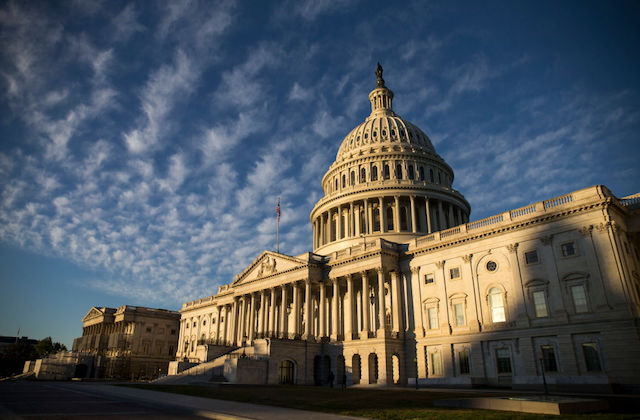With Georgia, Kentucky and Mississippi passing restrictive laws around abortions, it seems as if the fight to overturn Roe v. Wade will be led by state legislatures. But yesterday, the federal government made strides to limit women’s access to the medical procedure when the Senate Committee on the Judiciary held a hearing on a 20-week abortion ban.
Presided over by Senator Lindsey Graham (R-S.C.), the hearing was titled “Abortion Until Birth: The Need to Pass the Pain-Capable Unborn Child Protection Act.” Its purpose was to support a bill Graham introduced in January, the Pain-Capable Unborn Child Protection Act (which is similar to a bill with the same name that was defeated last year). In attendance were a number of heads of organizations that are staunchly opposed to abortion, including Dr. Donna Harrison, president of American Association of Pro-Life Obstetricians and Gynecologists and Catherine Glenn Foster, president and CEO of Americans United for Life (AUL). Both women testified that a fetus can feel pain 20 weeks into a woman’s pregnancy—which has been refuted by the American College of Obstetricians and Gynecologists.
Pro-choice voices were also in attendance. Reports Rewire.News:
rnt
Georgia state Senator Jen Jordan (D-Atlanta) spoke at the hearing about her experiences with a 20-week ban passed in the state. “Since its passage in 2012, Georgia’s 20-week ban has had a profound and deadly [effect] for the women of the state. Whether that is the intent or not, it is certainly the outcome. And I have seen it in my rural, South Georgia hometown just as I have seen it in the Atlanta metro area,” Jordan said, according to her prepared remarks.
t
“Currently, it is exceedingly difficult to get an abortion in Georgia, but it is just as difficult to give birth in Georgia. No doubt in part to the 20-week-ban, there are no winning options for many of the women of this state,” she said, noting that “since the passage of Georgia’s 20-week-ban in 2012, we have seen the maternal mortality rate double in Georgia.”
Twenty-one states already have laws restricting abortions after twenty weeks. As Colorlines has previously reported, the reasons vary as to why women seek the procedure, including a dramatic change in their life circumstance and the inability to have an abortion earlier in pregnancy. Women of color tend to bear a disproportionate burden of restrictions on abortion, and young women and lower-income earning women are more likely to need abortion care later in pregnancy.
Planned Parenthood President Leana Wen said, via Twitter, that the hearing is a distraction to draw attention away from state-level legislative actions that are dangerous for women.
rnt
Anti-women’s health politicians (including the President) are manufacturing outrage about abortions later in pregnancy, which are extremely rare. They are attempting to distract from their broader agenda to ban all safe, legal abortions. #EndTheLies https://t.co/IumsCWAHUX
rnt— Leana Wen, M.D. (@DrLeanaWen) April 10, 2019
rntAside from the “heartbeat bans” (bills that prohibit abortions as early as six weeks of pregnancy) passed in Georgia, Mississippi and Kentucky, in 2019, 28 other states introduced bills that would ban the procedure. “Those measures included so-called trigger bans to immediately ban abortion should Roe v. Wade be overturned, bans on some methods of abortion and bans based on gestational age,” reports Rewire.News.
Though Graham’s hearing provided a Congressional platform for anti-choice voices, his bill is unlikely to pass the Democrat-run House of Representatives.
